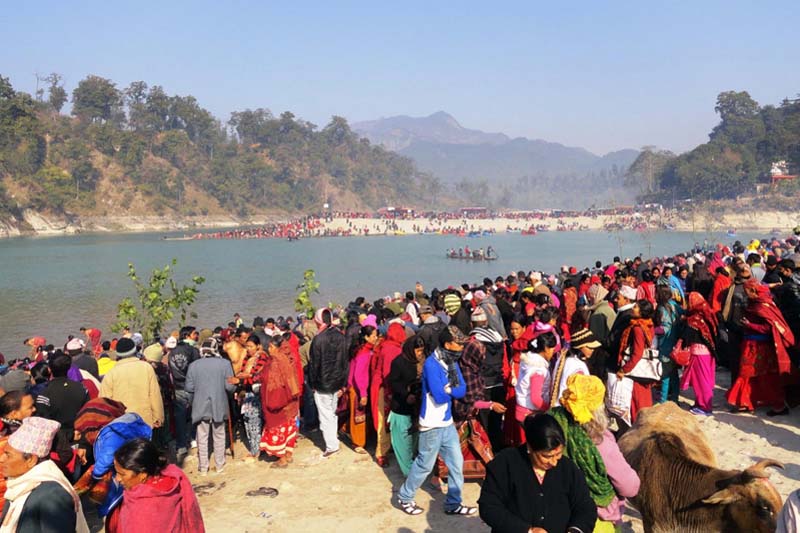Maghe Sankranti, Maghi, Ghyo Chaku Sallnhu being observed today
KATHMANDU, JANUARY 14
‘Maghe Sankranti’, ‘Maghi’ and ‘Ghyo Chaku Sallnhu’ are being observed throughout the country today by taking holy dips in rivers and ponds, worshipping at various temples, and savouring delicacies like ghee, yam, khichadi and sweets.
Maghe Sankranti (aka Makar Sankranti) is being celebrated throughout the country today.
It is being observed by taking holy dips in rivers and ponds, worshiping at temples and savouring delicacies such as ghee, yam, khichadi, and sweets like Chaku and sweets made of sesame and molasses.
As per the astrological chart, Makar Sankranti has special significance — this day onwards the sun starts its ascendancy and enters the northern hemisphere. On this day, the sun moves from the tropic of Sagittarius to tropic of Capricorn. It is believed that the days get longer and nights shorter from today itself.
According to Bhabisya Puran and Dharma Sindhu, the religious text, devotees will get special blessings and have robust body if they observe the festival as per the rituals, said theologian and Chairperson of Nepal Calendar Determination Committee Prof Ram Chandra Gautam.
The Newar community observes the festival by taking ghee, chaku and remembering the departed souls. This festival is called as Ghyo Chaku Sallnhu.
The seniors apply mild-hot edible oil to the heads of juniors on this day.
A large number of devotees throng Devghat, Barahchhetra, Ridi, Panauti, Dolalghat and Kankai in Nepal and Prayag and Gangasagar in India to take a holy bath and perform Shraddha.
The festival has significance in view of Ayurveda and medical science as well.
Food items that are taken on this day are sources of balanced diet which increases immunity power of the human body.
On this day, a festival is organised at the Tilmadhav Narayan temple at Taumadhi Tole, Bhaktapur and puja of Deepakankar Buddha is performed.
The Tharu community observes this festival as Maghi with much fanfare and gaiety for five consecutive days.
Likewise, people in the Tarai districts mark this day as the festival of bathing known as Nahan.






